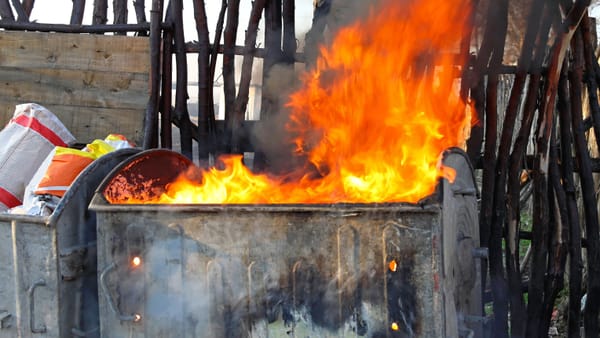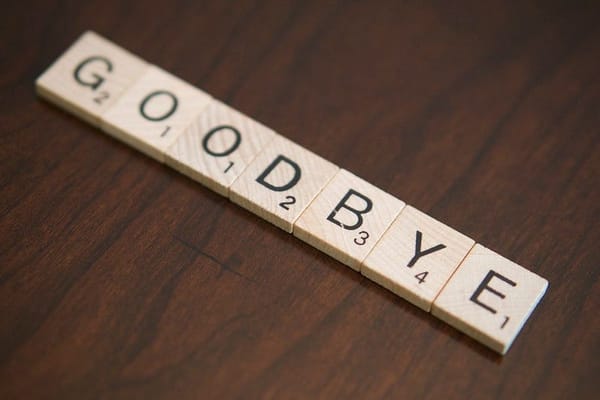Being Trans In The Paradox Of Sports
With more inclusive policies, trans people won’t ever have to make the painful choice between athletic pursuits, and living their truth.

With more inclusive policies, trans children and adults won’t ever have to make the painful choice between athletic pursuits, and living their truth.
Just last week, the International Olympic Committee (IOC) announced new rules for transgender athletes, an update that officially ended its controversial (and counterproductive) Gender Confirmation Surgery (GCS) requirement.
This is a huge step forward for transgender people everywhere. The reason is simple: Many of us in the trans community simply choose not to have surgery in the first place, either because of lack of need or — as is too often the case — the funds to pay for it. Whether or not to undergo expensive and invasive GCS should be a matter of individual preference, not a litmus test for an athlete to continue his or her pursuits.
It’s often easy to forget that GCS is, in essence, permanent sterilization. As such, it has the potential to be as much a hindrance to one’s freedom as a impetus for it.
Looking back, my involvement in sport was equally paradoxical.
Growing up in the trans closet came with a complicated relationship with my body. On the one hand, my gender assignment left me distressed, as it was so obviously out of touch with who I knew myself to be. At the same time, my body loved being in constant motion; to test itself; to reach ever higher levels of athletic achievement. As a developing adolescent, I’d oftentimes contemplate the stark juxtaposition between my own body hate and the sheer euphoria I felt from athletic achievement. It was more confusing than you can possibly imagine.
My love of sport and my desire for femininity have been at odds for as long as I can remember. “Boys like sports” is something I’ve told myself over and over for decades, no matter how many wonderful, strong female athletes I would see around me. My internalized misogyny acted as a shield, preventing me from pursuing my true self.
By eight years old, I knew something was different about me. This is when I realized that my fascination with the girls on the playground wasn’t an attraction thing, as I’d previously assured myself, but more of a jealousy thing. I desperately wanted to be one of the girls, playing games and climbing jungle gyms in dresses and ponytails. My own group of friends, all male, hardly bothered with the regular playground equipment. Instead, we’d spend our time in the wide-open green space that ran adjacent to the playground, playing various sports. Soccer and football were the preferred games in my small group of friends, as we’d often avoid the larger kickball game happening in the paved area opposite. For myself in particular, kickball was the absolute worst — a haven for all the bullies and a constant stream of toxic masculinity.
Playing on the green was a very different experience. There was a certain poetry to the movement, a kind of rough choreography, that felt comfortable for me — even familiar. Out in that field, I wasn’t trans, I wasn’t different, I wasn’t even male.
I was just an athlete.

Sport was my art of choice and I threw myself into it with abandon. I can remember a middle school math teacher confiscating a hand-drawn playbook for four-on-four flag football, or the countless little-league practices where I never seemed to hit the ball.
When I was playing something, I didn’t have to worry about my gender. I didn’t have to worry about my short hair, or the fact that I was starting to grow face stubble. It was like my identity didn’t exist. Here, I was just some number the basketball referee called fouls on, or the goalie opposing parents would taunt after I made a good save. I wasn’t a trans kid crying myself to sleep every night. Sport became my escape; my coping mechanism.
As I grew older, issues relating to sports participation became more prominent for me. In middle school, I had my first experience with a locker room. The first time I took my shirt and pants off, I remember glancing around nervously, looking for anyone eyeing me strangely — a knowing look deeming me as not one of them. As something other. I felt self conscious about my chest, despite the fact no one else seemed to care.
Luckily, no one besides me seemed to notice how out of place I felt. Looking back, I’m thankful I grew up at a time when kids didn’t shower in school. Quite frankly, I’m not sure I would’ve survived that. Nonetheless, there were still incidences of masculinity-testing that truly made me uncomfortable. Occasionally, a penis or two would be displayed in an obvious way, as if the boys literally needed to measure their manhoods. I never understood it, ever. Half the time I just wanted mine to disappear entirely. I remember hurting my penis at my birthday party when I was 10 or 11, secretly hoping it would have to be amputated.
I responded to all these situations the only way I knew how: I signed up for more sports. My calendar consisted of four seasons and four seasons only: track, preseason, soccer, and basketball. The feel of the grass on the field, the squeak of sneakers on the hardwood, the crunch of cinder under my shoes from the track — they were my best therapy, despite whatever ancillary locker-room stuff I had to deal with to get there.
When I moved into high school, I started thinking more and more about dealing with my gender identity. How was it possible, I wondered, to want to be both the captain of the basketball team and the head cheerleader, all at the same time? I’d lead our school to victory by day, then go home and change into a skirt, feeling confused and bad about myself.
This double life was taxing, and my academics suffered for it. I got good enough grades, all things considered. But the exhaustion from having to battle my inner self, that always-crushing sense of gender dysphoria, all day and every day — it drained me. I never seemed to have the energy or attention span for homework. I’d ace all of my tests, only to get a B-minus in the class.

Finally, I decided I needed to do something about it. At 17, around Halloween, I came out to my mom as … something? I didn’t tell her I was transgender, per se, opting instead to say I was more comfortable in female clothing and presenting as a girl. It was an eminently relieving experience, and my mom, though shocked, never wavered in her support.
Sadly, back then neither of us were prepared to even consider looking into gender transitioning … let alone coming out to my dad, a Phys Ed teacher and coach — a prospect that still terrifies me to this day.
(For the record, I’m still mostly in the closet, and have only come out to a few select friends and family.)
Not long after confiding in my mom, I remember thinking that if I chose to go through with transitioning, I’d never be able to play organized sports again. No one where we lived would allow me to play sports with girls, no matter how swift or thorough the transition. I knew then that I’d never again find comfort in that grass, or hear that old familiar squeak of sneakers. If I decided to live my truth, my most trusted lifeline — sports — would be ripped away from me. As my mom started gauging how I felt about transitioning, I panicked. I begged it off as a phase, diving headlong into the safety of my closet.
That, in essence, is why trans-inclusive sporting policies are so important to me, and to so many other transgender people. Thanks to policies like the IOC’s recent overhaul (and, it is hoped, others like it), trans people — children as well as adults — won’t ever have to make the painful choice between athletic pursuits and living their truth.
Moreover, we must reject policies like the one proposed in Nebraska. Such measures — whether requiring surgery or demanding a committee to approve trans athletes — are harmful and needlessly discriminatory.
I applaud the IOC for taking courageous next steps towards ensuring that no trans athlete ever has to choose between their livelihood and their athletic passion. In its own small way, this act is helping pave the way to a more humane, empathetic world.





